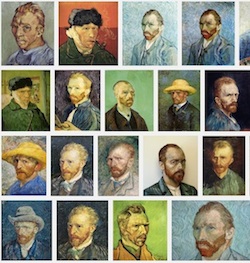  

![]() In this workshop, Jamie demonstrates how to build units around challenging questions and tasks that require students to make meaning rather than simply collecting it. With this approach, students will make up their own minds, come up with solutions to difficult problems and learn to build a case firmly supported by evidence and logic. Participants learn to form essential questions as well as questions of import that will guide student exploration and thinking. As with all of Jamie's workshops, the focus on higher level thinking is expected to pay dividends on high stakes tests purporting to measure such thinking. In this workshop, Jamie demonstrates how to build units around challenging questions and tasks that require students to make meaning rather than simply collecting it. With this approach, students will make up their own minds, come up with solutions to difficult problems and learn to build a case firmly supported by evidence and logic. Participants learn to form essential questions as well as questions of import that will guide student exploration and thinking. As with all of Jamie's workshops, the focus on higher level thinking is expected to pay dividends on high stakes tests purporting to measure such thinking.

In this workshop, Jamie shows how teachers can shift from trivial pursuit to research that results in new ideas and an impressive report. If we hope to see students engaged in research that matters, we must avoid time-honored rituals that require little more than gathering, scooping and smushing. Topical research has long served to limit the value of student exploration, as "go find out about" requires very little more than the collection of heaps of information. Especially with the electronic shovels that arrived a few decades back with the Internet, hunting and gathering has been simplified and expedited so radically that little thinking or labor is involved. Students can copy and paste at will, which has led to widespread plagiarism rather than authentic learning. As with all of Jamie's workshops, the focus on higher level thinking is expected to pay dividends on high stakes tests purporting to measure such thinking.

Meaningful inquiry involves students in wrestling with mysteries, puzzles, conundrums and difficult questions and issues that deserve thought and consideration. We expect students to weigh the thinking of experts and elders but then come up with their own positions, decisions and suggestions. Jamie is bringing back his highly successful seminar devoted to synthesis, fresh thinking and originality. Originally presented in some 20 cities across the USA, this hands-on seminar shows how to equip students with the skills to build their own new ideas and to make up their own minds about the most important issues of life. This seminar engages the group in learning a dozen synthesis strategies they may turn around and teach to students.

In this workshop, Jamie shows how eBooks can augment the comprehension of students thanks to the note-taking and intense questioning now supported by the software accompanying the books. Students engage in what amounts to a dialogue with the book. Jamie engages the participants in testing out these reading strategies with tablets or laptops considering three major ways digital reading may enhance and enrich the understanding of the reader:
Advantage #1 - Notes
Advantage #2 - Enrichment and Lateral Reading
Advantage #3 - Vocabulary

If we wish to enhance the the imagination and the cleverness of our students, we must engage them in activities that call for nimble thinking and agility. There must be a focus on inventiveness. Both teachers and students must be highly skilled at synthesis - the process of changing things around in order to make them better. In this workshop Jamie shows the group how to promote cleverness by emphasizing activities that require such thinking.

Discerning teachers and students use new technologies when they enhance learning, but they will turn to classical tools when they better serve learning goals. Unfortunately, in some schools, there is pressure from above to make frequent use of new tools whether they advance learning or dilute it. "Doing technology" becomes a goal apart from learning itself. In this workshop, criteria are offered to help guide decision-making:
1. Has the innovation led to a qualitative improvement in the production and learning of students?
2. Has the innovation led to efficiencies?
3. Has the innovation led to a richer palette?
4. Has the innovation led to a broader perspective?
5. Has the innovation led to deeper understandings?
6. Has the innovation created convincing data to validate the above accomplishments?

With the arrival of social media, fake news and the Net, it has become difficult to tell, sometimes, what is true and what is false. In this workshop, Jamie explores the challenge of equipping students with the thinking skills required to test the veracity of sources and information, so they are innoculated against manipulation, marketing and propaganda. Jamie stresses the importance of multiple literacies in the search for truth - media literacy, visual literacy, cultural literacy, social literacy, artistic literacy, scientific literacy, numerical literacy, verbal literacy, etc.

Even though "selfie" is a new term, self portraits have been around for a long time. Vincent spent many hours painting his image. With the widespread availability of hand held cameras embedded in phones, nearly everyone in developed nations has the capacity to take self portraits and share them with friends, family and strangers. This workshop suggests ways that schools might capitalize on this craze to engage students in levels of self reflection they might not otherwise consider. The mere shooting of a selfie need not involve much reflection at all, but there is great potential for the thoughtful exploration of concepts like masks, masking, pretense, persona, projection, front, facade, guise, and exterior.
|






